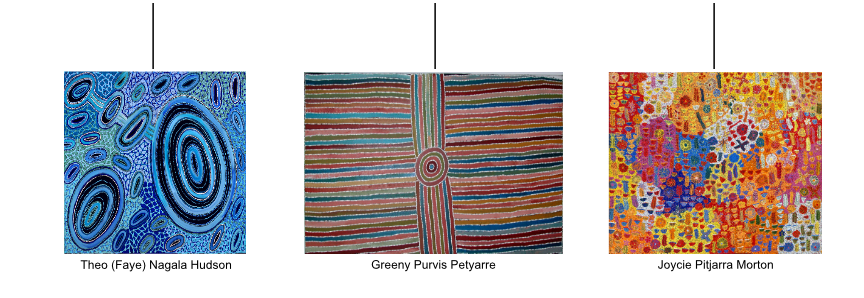
 |
|
|

Booker-Lowe is partnering with Redbud Arts Center to present
Ancient Lands . . . Ageless Stories,
an exhibition of Australian Indigenous art in honor of the 50th anniversary
of the contemporary Aboriginal art movement!

Redbud Arts Center
303 East 11th Street
Houston TX 77008
RAC Hours: Tuesday – Saturday, 12 noon – 5 pm
and by appointment
Ancient Lands . . . Ageless Stories runs through Saturday, December 30th.
Ancient Lands features paintings by elders of the art movement such as Greeny Purvis Petyarre
and Lorna Fencer Napurrurla, as well as works by some of today’s best-known artists,
including Joycie Pitjarra Morton and Fiona Omeenyo.
The show also includes special pieces just released for sale from private collections!
In addition to curating exhibitions for galleries, businesses, and institutions,
Booker-Lowe Art provides personalized searches for Australian Aboriginal art;
hands-on assistance with building, managing, and installing art collections;
and other art advisory services.
Booker-Lowe respectfully advises the families that our website may include
the names of recently-deceased Australian Indigenous artists.
All images © of the artist and Booker-Lowe Art as their representative for this exhibition.

© Booker•Lowe Gallery 2022, c/o 101 Westcott Street, No. 902, Houston, Texas 77007 USA
Tel: 713.880.1541
info@bookerlowegallery.com
